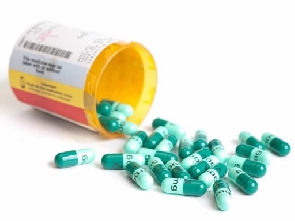Opinions of Wednesday, 1 November 2023
Columnist: Michael Agbesi Kelly
Antibiotics abuse: A common phenomenon in Ghana
Antibiotics are powerful medications that have revolutionized the treatment of bacterial infections.
However, their overuse and misuse have become a global concern, including in Ghana. Antibiotic abuse, characterized by inappropriate usage, self-medication, and non-compliance with prescribed regimens, has become a common phenomenon in the country. This article aims to shed light on the issue, its causes, and the potential consequences for public health.
Causes of antibiotics abuse in Ghana:
Limited access to healthcare: Inadequate access to healthcare facilities and trained medical professionals in certain areas of Ghana leads to self-diagnosis and self-medication with antibiotics. Lack of awareness about the dangers of self-medication contributes to the problem.
Limited prescription regulations: Some antibiotics are readily available over-the-counter in Ghana without a prescription, making it easy for individuals to obtain and misuse them. This lax regulation allows for the unrestricted sale of antibiotics, contributing to their abuse.
Lack of awareness and education: Many Ghanaians have limited knowledge about antibiotics, their appropriate usage, and the consequences of misuse. This lack of awareness leads to improper self-medication and non-compliance with prescribed antibiotic regimens.
Consequences of antibiotics abuse:
Antibiotic resistance: The abuse of antibiotics contributes to the development of antibiotic-resistant bacteria. When antibiotics are used inappropriately or unnecessarily, bacteria can adapt and become resistant to their effects. This leads to treatment failures and the need for more potent and expensive antibiotics, which may not always be available.
Increased healthcare costs: Antibiotic resistance results in longer hospital stays, increased treatment costs, and the need for more extensive medical interventions. This places a significant burden on the healthcare system and individuals, as they may have to seek alternative, more expensive treatment options.
Adverse drug reactions: Misuse of antibiotics can lead to adverse drug reactions, including allergic reactions and drug interactions. These reactions can range from mild to severe and may require additional medical attention.
Disruption of microbiome: Antibiotics not only kill harmful bacteria but also disrupt the natural balance of beneficial bacteria in the body. This disruption can lead to various health issues, including gastrointestinal problems and increased susceptibility to other infections.
Addressing antibiotics abuse:
Strengthening regulations: Ghana should enforce stricter regulations regarding the sale and distribution of antibiotics. This includes limiting the availability of antibiotics without a prescription and increasing penalties for those who violate these regulations.
Public awareness campaigns: Educational campaigns should be conducted to raise awareness about the appropriate use of antibiotics, the dangers of self-medication, and the importance of completing prescribed antibiotic courses.
Healthcare infrastructure improvement: Efforts should be made to improve access to healthcare facilities, particularly in remote areas. This includes increasing the number of healthcare professionals, ensuring the availability of essential medications, and promoting responsible antibiotic prescribing practices.
Healthcare provider training: Continuous education and training programs for healthcare providers can help ensure proper prescribing practices and improve patient education on antibiotic usage.
In conclusion, antibiotic abuse is a pressing issue in Ghana, with significant implications for public health. Addressing this problem requires a multi-faceted approach, including stricter regulations, public awareness campaigns, and improvements in healthcare infrastructure. By taking proactive measures to combat antibiotic abuse, Ghana can safeguard the effectiveness of antibiotics and promote better health outcomes for its population.













